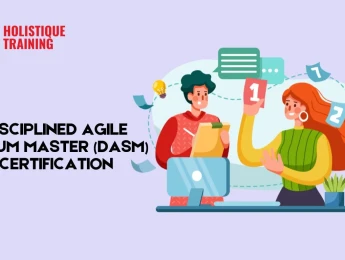Construction contracts are crucial for any project as they protect all parties involved in the process and guarantee the client will receive the final product in most circumstances. However, insurance contracts are often overlooked throughout this process due to an eagerness to begin work.
Finding the right construction insurance is vital for any construction project. The construction industry carries an immense amount of risk, both to the physical project and to human life. Insurance can cover a wide range of factors within the project and ensure minimal financial loss for the contractor.
It is also important for those responsible for managing contracts to understand how insurance claims work and the process for handling a claim. Each insurance company will have its own personal methods of proceeding, and the contractor will need to be fully capable of navigating that process to protect themselves and their project. Knowledge of limits of liability and risk transfer clauses such as CAR and EAR is essential.
Upon completion of this course, participants will be able to:
- Review the basic principles of insurance.
- Understand the vitality of insurance within the construction industry.
- Assess risk transfer mechanisms such as Contraction All Risks (CAR).
- Analyse various policy operative clauses and endorsements.
- Calculate ideal practices and proceedings necessary to obtain a wider and more effective insurance policy.
- Utilise policy operative clauses in situations where risks occur.
- Examine the process of responding to insurance claims.
- Evaluate how different insurance companies manage claims.
- Implement effective risk management strategies to reduce the potential necessity of making an insurance claim.
This course is designed for anyone responsible for managing construction insurance contracts or those involved with the contract process. It would be most beneficial for:
- Project Engineers
- Operations Managers
- Construction Managers
- Contractors and Subcontractors
- Architects
- Project Managers
- Construction Consultants
- Law Personnel specialising in insurance contracts.
This course uses a variety of adult learning styles to aid full understanding and comprehension. Participants will review genuine examples of construction contracts to highlight key features relating to insurance, potential risks and clauses that relate to them.
Participants will partake in a range of activities, including presentations, video material, discussions, and role-playing activities, to provide a full understanding of the content taught. To enhance their new knowledge and practical skills, participants will work together on various case studies on construction site scenarios to achieve an ideal insurance outcome for the parties involved.
Day 5 of each course is reserved for a Q&A session, which may occur off-site. For 10-day courses, this also applies to day 10
Section 1: Contractual Requirements within Construction
- Understanding why contracts are necessary.
- How contracts protect all involved parties – employer, employee and client.
- The necessity of insurance for construction projects.
- Managing project contract administration.
- The concepts, principles and processes of insurance.
- Finding the ideal insurance company to suit business needs.
- The relationship between the construction and insurance industries.
- Establishing the conditions of contracts.
Section 2: Policy and Coverage
- Describing the CAR policy.
- Defining EAR policy.
- How the CAR policy is utilised within contracts and insurance.
- Understanding the standard wording format for various regions, such as Munich Re.
- The difference between CAR and EAR and the situations each one is better suited for.
- Sections I, II and III in relation to relevant coverage.
- Period of cover, general exclusions and policy conditions.
Section 3: Material Damage
- Describe what a policy operative clause is.
- Calculating the sum insured against the total cost of damage.
- Possible exclusions for the insurance claim.
- Analysing the circumstances where exclusion policies may apply.
- The role of loss settlement clauses.
Section 4: Third Party Liability
- Defining third parties.
- How the limit of liability clauses protects the contractor.
- Assessing the limit of liability stated within a construction and insurance contract.
- Exceptions and conditions of third party liability – gross negligence and wilful misconduct.
- The consequences of breaching insurance contracts.
Section 5: Project Risk and Claim Management
- Assessing all parties' contract concerns and discussing them accordingly.
- The importance of effective risk management in reducing risks to materials, structures and people.
- How risk management reduces insurance risk and benefits claim management.
- Monitoring project progress to continuously keep risks as a minimum.
- Situations of declined claims.
- Calculating adjustments.
Upon successful completion of this training course, delegates will be awarded a Holistique Training Certificate of Completion. For those who attend and complete the online training course, a Holistique Training e-Certificate will be provided.
Holistique Training Certificates are accredited by the British Assessment Council (BAC) and The CPD Certification Service (CPD), and are certified under ISO 9001, ISO 21001, and ISO 29993 standards.
CPD credits for this course are granted by our Certificates and will be reflected on the Holistique Training Certificate of Completion. In accordance with the standards of The CPD Certification Service, one CPD credit is awarded per hour of course attendance. A maximum of 50 CPD credits can be claimed for any single course we currently offer.
- Course Code IND13-107
- Course Format Online, Classroom,
- Duration 5 days














